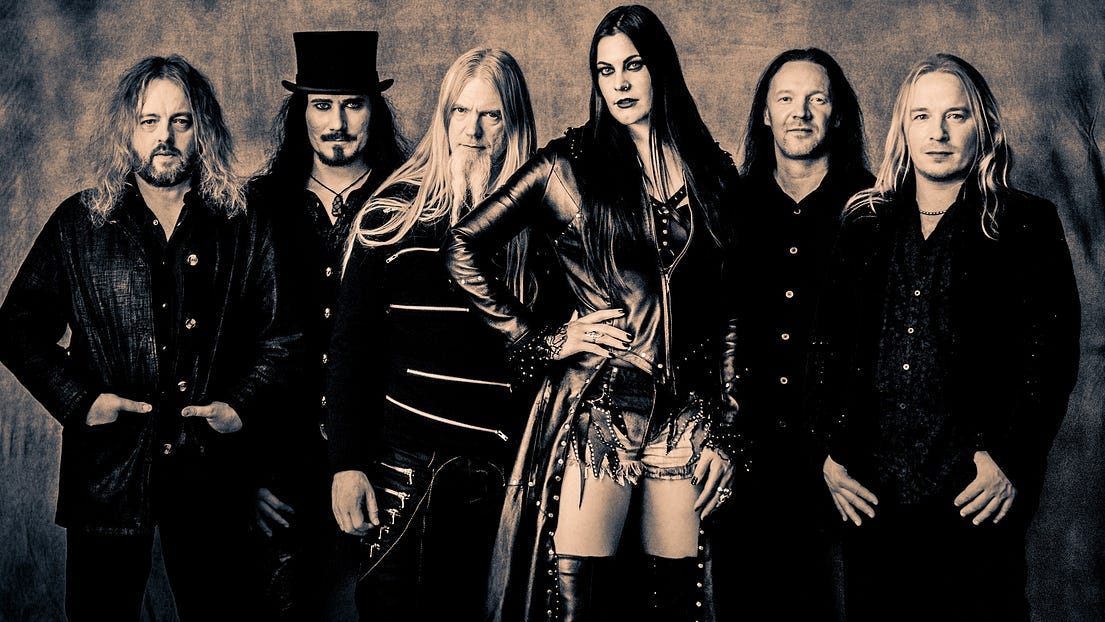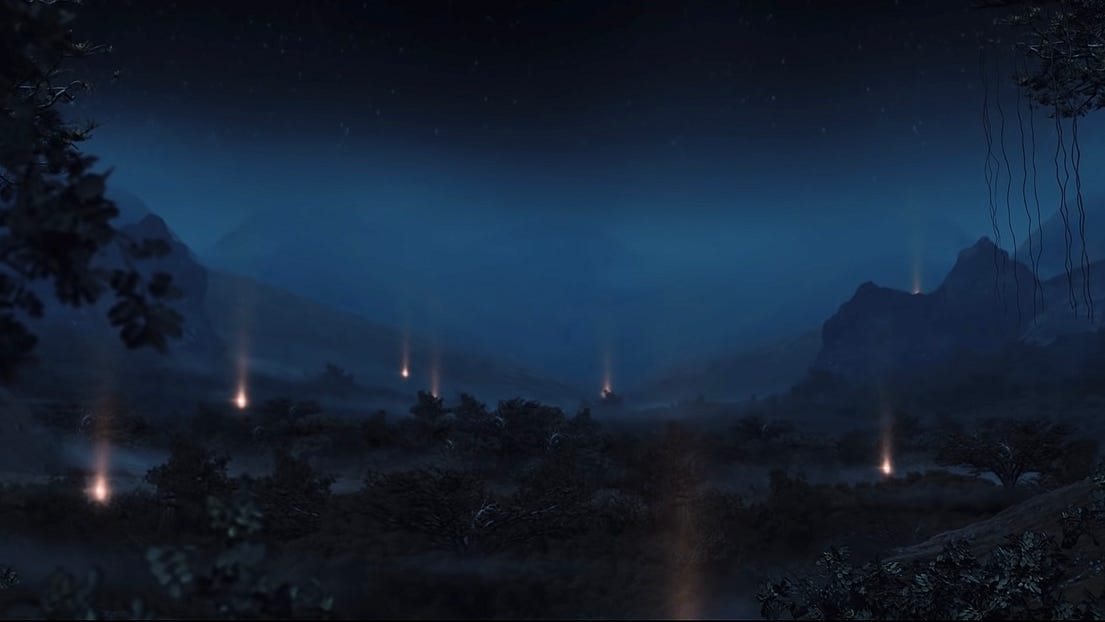The Riff Album of the Month has been a great way for people to make friends, share music, and learn about artists we had not heard of before. Anyone and everyone is invited to join. It’s easy—just use the Zoom link below. You can share comments or just listen in — there is no pressure either way!
(To join, please go to: Album of the Month
https://us02web.zoom.us/j/86006109839?
(ID: 86006109839, passcode: ?3RSQ9iY)
Or join by phone:
(US) +1 312–626–6799 (passcode: 47848174))
……….
The fondest memories of my youth are of singing in our school choir. Other than that, my school years were largely a soul-killing nightmare. Two things made it bearable: Choir, and my friend Marie (who also happened to be in the choir with me). I practically lived for our concerts, especially the annual Candlelight service, and for the rehearsals leading up to them.
We were lucky. We had an exceptional — and ambitious — choir director, Charles Matz. He was not content to have us sing the pap typically written for children. Our repertoire included Händel, Brahms, and Knut Nystedt, the Norwegian post-modernist.
I have never been religious, but I loved the music. It gave me a sense that the Universe was much bigger than I was and that my problems ultimately weren't that important. For me, that was a great consolation.
I grew up around music. At home, my parents mostly listened to classical, with a healthy dose of jazz and American songbook. My mom literally kept the radio or the record player on all day. In addition to the singing, I took piano lessons as well.
It was also the golden era of rock, with the Beatles, Jefferson Airplane, Cream, the Doors, and Janis Joplin filling the airwaves. I didn't realize until later how lucky we were that the best music was also the most popular music. (We would suffer whiplash in 1970 when "Raindrops Keep Falling on My Head" went to #1, but let's leave that topic for another day…)
So, the world was full of music. Unfortunately, it seemed to be confined to silos. People who liked one kind of music rarely listened to other kinds of music. My parents’ generation thought rock was just vulgar noise. My schoolmates thought classical and jazz were for old farts and "faggots." Bullies aggressively tormented boys who played the piano (it's one reason I eventually quit).
So imagine my shock many years later when I found a whole new universe combining classical music's beauty and wonder with rock instrumentation. Call it rock opera or symphonic rock: take the grandeur and intricacy of Beethoven and add the amplified electric sound of rock and roll. It's not in style in the U.S., but is mainstream in Europe, Latin America, and, more recently, Japan.
There were some early precedents for symphonic rock. Deep Purple and the London Philharmonic performed the Concerto for Group and Orchestra in 1969 to largely positive reviews. It has been performed several times since by various combinations of orchestras and rock ensembles, often featuring former members of Deep Purple.
In the 1970s, we had Godspell, Hair, and Jesus Christ Superstar, often called rock operas. I either performed in or went to see productions of all three.
Symphonic metal takes this fusion to a completely different level. One of its defining features is that most of the musicians are classically trained. Their compositions reflect that. Another is the prominent role of women. Where metal was once the exclusive domain of angry-sounding young men, the symphonic metal bands infuse it with divine feminine energy.
The band:
Nightwish were founded in Finland in 1996, and were among the pioneers of symphonic rock. Their sound was built around their original vocalist, Tarja Turunen, a Finnish classical soprano who had trained at the Sibelius Academy. Nightwish became Finland's most important musical export and have been one of the biggest rock bands in the world for most of their 27 years, regularly filling stadiums in Europe, Asia, and South America.
Their songs embrace the full range from the personal (contemplations on love, loss, death, and madness) to the universal (songs about time, space, and the nature of existence). Tuomas Holopainen, the band's founder, main composer, and keyboardist, has been called "the Metal Mozart." He has constantly changed and evolved his approach to writing, which is not without controversy — die-hard fans passionately debate the merits of the various periods in the band's history.
In 2005, at the height of their power and popularity, Nightwish had a bitter breakup with Turunen. Many of the fans turned on Holopainen, whom they blamed (with some justification) for the breakup. He sank into suicidal depression, and Nightwish nearly disbanded completely. The song he wrote about his struggle to keep going, "The Poet and the Pendulum," is in my opinion, a rock masterpiece of the same order as "Bohemian Rhapsody".
Here is a clip from the last Nightwish concert with Turunen on vocals:
Nightwish hired a new singer, Anette Olzon, in 2007. Holopainen is a good enough composer that he can write specifically to suit individual voices. So it was with Olzon: they released two albums with her, which became their most commercially successful albums to date. However, the band's physically exhausting touring schedule and the stress of constantly being compared by fans to their beloved Tarja probably became too much for her to bear.
In mid-2012, Olzon broke down during their first American tour and could not continue. The band reached out to Dutch soprano Floor Jansen and asked her to finish out the tour with them. She agreed and flew in from Europe with a day to learn the setlist. She joined full-time in 2013 and remains with the band today. It is her voice that we will hear on this month's album.

Here is a clip from their 2013 headlining concert at Wacken, Germany. It was one of their first performances with Jansen as a full-time member. In retrospect, Jansen may be the only vocalist alive who could have stepped into Tarja's shoes:
Nightwish have a small but dedicated following in North America. Their fans here have to make an effort to hear them because the American music industry (including radio and the music press) refuses to give them any oxygen.
The Album:
The album is Human. :II: Nature. It is their most recent studio album, released in 2020. It is available on most streaming services, but a full set of lyric videos are posted on YouTube, which I recommend using. The full playlist is posted here.
Human. :II: Nature is a double album. We are only reviewing the first disc or the first nine songs. (If you are interested, the other eight are instrumentals in a completely different mode, but we will not be discussing them.)
The album weaves together several themes that Nightwish have touched on throughout their history: Existence and impermanence; the evolution of life on our planet; the nature of consciousness; the human connection to our environment; and through it all, music as both the actual and the metaphorical source of everything. Nightwish did not invent the last idea — in Finnish mythology, God literally sang the Universe into existence.
We live in a moment when the evidence that we are burning our own house to the ground is becoming harder and harder to ignore. Nightwish, like many European bands, have been tireless advocates for rationality and for our responsibility as stewards of our planet. When this album came out, I felt it could not be more timely. For me, it feels like a message of hope that we can still turn things around — provided enough people listen.
Finally, a note on one of the songs: "Shoemaker" honors the late geologist and astronomer Eugene Shoemaker. He discovered or co-discovered several families of asteroids and comets, including Shoemaker-Levy 9.
He ran the Geoscience program at NASA and showed that meteor impacts caused craters on the Earth and Moon.
Shoemaker was himself slated for an Apollo Moon mission but was disqualified for medical reasons, which he said was the greatest disappointment of his life. He eventually died in the most mundane way, in an automobile accident. Shoemaker's ashes were taken to the Moon on a NASA probe and laid to rest in a crater named after him.
As far as we know, he is the only person to date interred on another planetary body. The capsule holding his ashes is inscribed with a passage from Romeo and Juliet, which you will hear in the voice-over before the final verse. I've seen them perform this live, and it brought the audience full of hardened metalheads to tears.
Once again, to join the Zoom Meeting on Oct 1, 4 pm Eastern (U.S) time:
Join via Zoom.
ID: 86006109839,
Passcode: ?3RSQ9iY
Join by phone
(US) +1 312–626–6799
Passcode: 47848174




Although a casual fan and aware of the different vocalists over the years. I didn't know about the breakdown during the US Tour. Fascinating how they managed to overcome the stresses and strains and that there are so many wonderful female vocalists. A unique band.
100% on Jon Lord. He’s probably my favorite rock keyboardist. So creative. I haven’t heard much symphonic metal, but I plan on giving it listen! And you’re welcome!